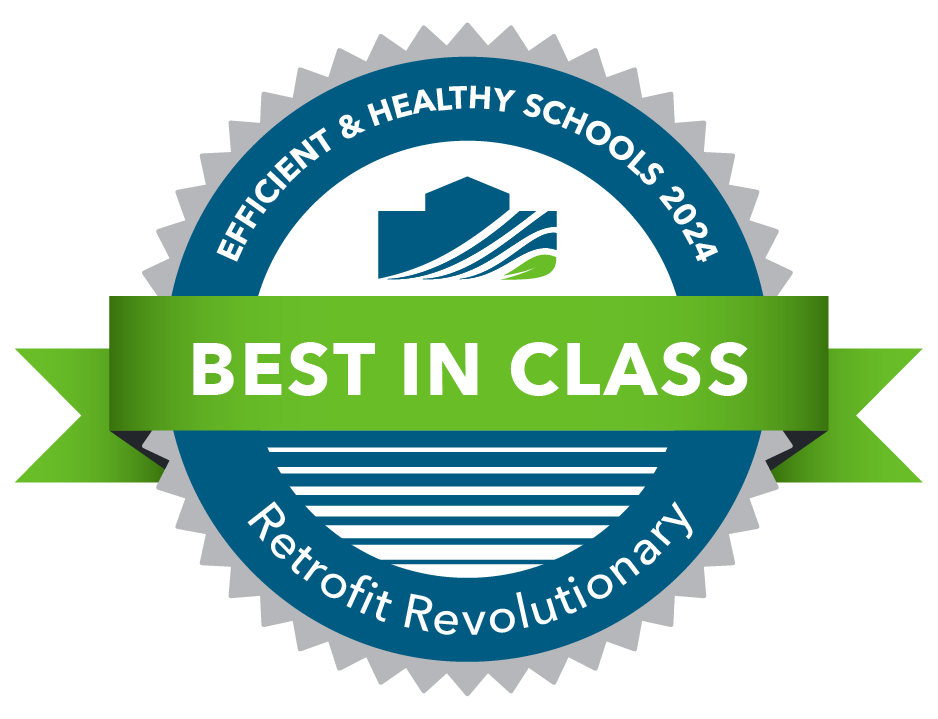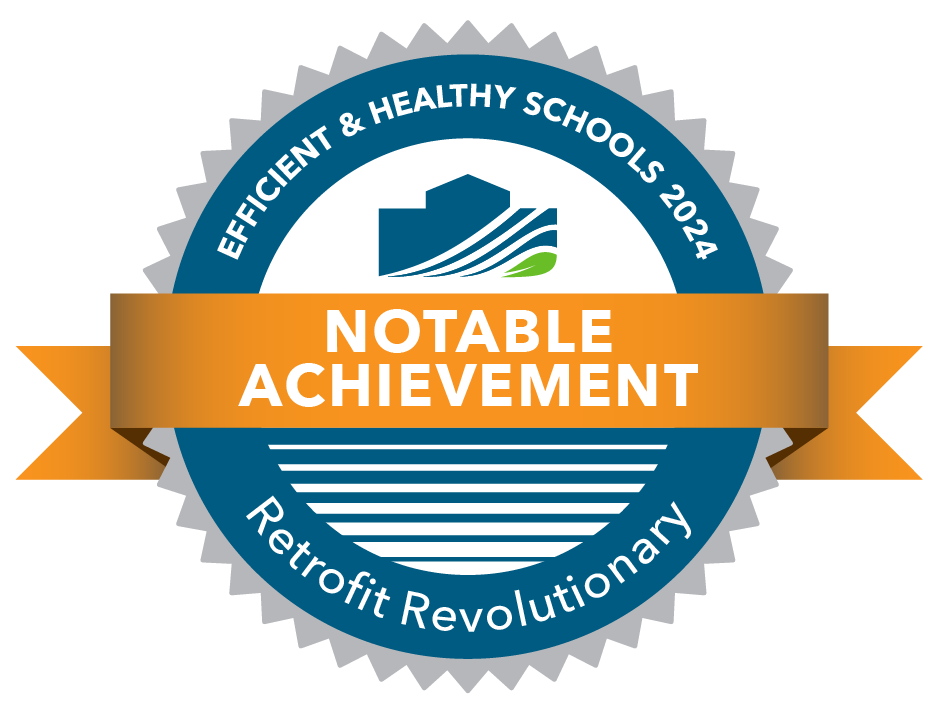Schools Across the U.S. Honored for Healthy Learning Environments

Best In Class: Retrofit Revolutionary
Efficient and Healthy Schools, a program sponsored by the U.S. Department of Energy each year, honors schools and districts that showcase exemplary retrofit projects to improve energy efficiency, resilience, and promote a healthy learning environment. Recipients of Best-in-Class recognition for implementing projects in the Retrofit Revolutionary category are listed below. These projects are well-planned, collect robust data that documents improvements in energy efficiency and learning, engaged students in learning opportunities, and are replicable.
Broward County Public Schools, FL

Schools: 329, students: 255,000. Broward County Public Schools, the 6th largest school district in the nation, successfully leveraged bond, ESPC, and federal funding (ESSER), to initiate multi-system energy retrofits that will reach over 230 schools and more than 1,000 structures. A district-wide facility needs assessment was conducted to obtain staff buy-in and prioritize areas for improvements. The initiative, named the SMART Program, implemented energy-savings measures at scale to improve the school environment. For example, 25 schools received HVAC optimization that dynamically adjusts the supply water temperature based on outside air temperature and occupancy. This measure alone provides an estimated energy savings of 15% to 35% for each system. Positive feedback from principals, staff, and students underscores the tangible benefits of the improvements on the learning environment.
Livonia Public Schools, MI

Schools: 26, students: 13,000. For more than a decade, Livonia Public Schools (LPS) has actively monitored and managed their buildings through a building automation system. The district utilized this data and right-sizing of equipment to complete boiler upgrades with funding from the district’s revolving maintenance fund, without requesting any new bonds from the community. These efforts not only resulted in substantial energy savings, the funds that were saved from HVAC redesign were reallocated to upgrades of educational equipment. The project’s success is now being considered by other Michigan school administrators for improvements to their districts.
Loudoun County Public Schools, VA

Schools: 98, students: 82,000. Aldie Elementary school had an EUI of 137 before Loudoun County Public Schools undertook a massive retrofit project, slashing the EUI by 70% through a suite of measures, including installation of the first ground-source heat pump system in the district. Despite fully electrifying the building and adding outside air load, this project lowered the power grid’s electric demand by 10%, reducing strain on the power generating and distribution systems during peak periods. The district has since approved additional installation of ground-source heat pump systems in their schools.
River Trails School District 26, IL

Schools: 4, students: 1,500. River Trails School District 26 undertook a deep energy retrofit of a 1960s building to become Prairie Trails School (PTS). Opened in fall 2021, PTS is the nation’s first net-zero energy school that also meets the 2018 PHIUS+ Source Zero project standard. Thoughtful application of efficiency measures and system improvements resulted in an all-electric school with an operational EUI of 24. Data verified that the school actually produces more electricity than it uses via onsite solar PV, making it “net positive”. The school acts as a learning tool for students across the district, with interactive educational displays, and the project’s success has paved the way for continued sustainability projects across the district.

Notable Achievement: Retrofit Revolutionary
This category honors schools and districts that showcase exemplary retrofit projects to improve energy efficiency, resilience, and promote a healthy learning environment. These honored school districts demonstrated success in setting a broad work scope, clearly stating performance criteria, and describing improvements in energy efficiency and the learning environment.
School District of Neillsville, WI

Schools: 3, students: 900. The School District of Neillsville undertook a massive capital improvement campaign across all schools, to address staff and student complaints about poor indoor air quality. Leveraging information from stakeholder engagement activities, a $12.5M referendum was passed by the community to support the district’s work in April 2023. The district has already completed the addition of energy monitoring to enable operational improvements. Over the next 2 years, the district plans to utilize ongoing commissioning, testing, monitoring, and energy usage evaluation to measure energy savings, emission reductions, and indoor air quality improvements.